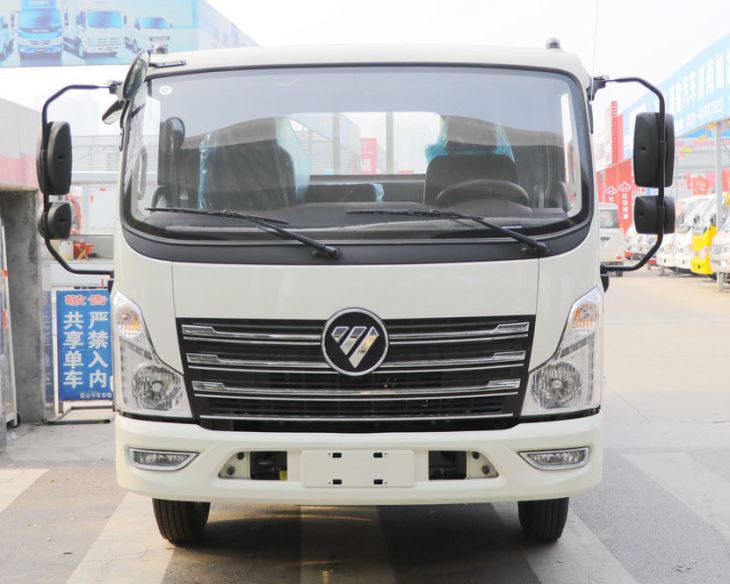In today’s ever-evolving automotive market, the term “commercial car” is frequently encountered. Whether you’re a business owner, a fleet manager, or simply someone interested in vehicles, comprehending what constitutes a commercial car is essential. This article delves into the definition of commercial cars, their types, uses, benefits, and considerations, providing you with a thorough understanding of the topic.
What is a Commercial Car?
A commercial car refers to any vehicle that is used primarily for business purposes rather than personal or leisure activities. These vehicles are designed to transport goods, services, or people in various business contexts. Commercial cars can range from small vans and trucks to larger vehicles like buses and specialized delivery vehicles.
Key Characteristics of Commercial Cars
- Purpose: Commercial cars are typically utilized for business-related tasks, such as delivery, haulage, or providing transportation services.
- Design: They are designed for durability and functionality rather than luxury and comfort.
- Registration: Commercial vehicles often require special registration and licensing compared to regular passenger cars.
- Insurance: Commercial car insurance policies differ from personal auto insurance and are tailored to cover business-related activities.
Types of Commercial Cars
Commercial vehicles come in various forms, each tailored for specific business needs.
1. Light Commercial Vehicles (LCVs)
Light Commercial Vehicles typically include vans and small pickup trucks. They are ideal for businesses that require transport for goods but do not need heavy-duty solutions.
Examples of Light Commercial Vehicles
- Ford Transit
- Mercedes-Benz Sprinter
- Ram ProMaster
2. Heavy Commercial Vehicles (HCVs)
Heavy Commercial Vehicles include larger trucks and trailers designed for transporting heavy loads over long distances.
Examples of Heavy Commercial Vehicles
- Freightliner Cascadia
- Volvo FH
- Kenworth T680
3. Passenger Transport Vehicles
This category includes buses and minibuses used for public transport or private shuttles.
Examples of Passenger Transport Vehicles
- School Buses
- Charter Buses
- Minibuses for shuttle services
4. Specialized Commercial Vehicles
Some commercial cars are tailored for specific industries, such as construction or emergency services.
Examples of Specialized Commercial Vehicles
- Refrigerated trucks for food transport
- Ambulances used for emergency medical services
- Dump trucks for construction sites
Uses of Commercial Cars
Commercial cars serve a multitude of purposes, making them indispensable in various industries.
Delivery Services
Many businesses rely on commercial vehicles for timely delivery of goods and services, which can range from e-commerce packages to large freight shipments.
Transportation Services
Vehicles like taxis, shuttles, and buses facilitate passenger transport, providing essential travel options in urban and rural areas.
Construction Industry
Commercial cars are vital for transporting tools, materials, and personnel to and from construction sites.
Emergency Services
Ambulances and fire trucks are examples of specialized commercial vehicles that provide critical services to the community.
Benefits of Using Commercial Cars
Investing in commercial vehicles offers several advantages for businesses.
1. Increased Efficiency
Commercial cars are specifically designed to optimize transport-related tasks, leading to increased productivity for businesses.
2. Cost-Effective Solutions
These vehicles can often accommodate larger loads, reducing transportation costs over time.
3. Brand Visibility
Commercial cars often feature branding opportunities, acting as mobile advertisements for businesses.
4. Enhanced Safety Features
Many commercial vehicles come equipped with sophisticated safety features, ensuring the well-being of drivers and passengers.
Considerations When Choosing a Commercial Car
Choosing the right commercial vehicle can greatly impact your business operations.
1. Assess Your Business Needs
Identify the primary functions your commercial car will serve, such as cargo transport, passenger service, or specific industry-related tasks.
2. Evaluate Vehicle Size and Capacity
Consider the size and load capacity required for your daily operations. A proper fitment ensures efficiency and cost-effectiveness.
3. Analyze Fuel Efficiency
Fuel costs can significantly impact your business budget. Prioritize vehicles with good fuel efficiency to minimize expenses.
4. Consider Resale Value
Choose brands and models with a good resale value to ensure better returns when it’s time to upgrade your fleet.
5. Understand Maintenance Costs
Factor in potential maintenance costs when selecting a commercial car to avoid unexpected expenses down the line.
Commercial Car Financing Options
1. Purchase
Businesses can purchase commercial cars outright, allowing complete ownership and control over the vehicle.
2. Leasing
Leasing a vehicle allows businesses to use a car without the upfront costs of buying. This can provide flexibility with newer models.
3. Loan Financing
A business loan can help cover purchasing costs, spreading the expense over manageable monthly payments.
4. Government Grants
Some government programs offer financial assistance to businesses investing in green or energy-efficient commercial vehicles.
Frequently Asked Questions (FAQs)
1. What is the primary difference between a commercial car and a personal car?
Commercial cars are designed for business use and can carry goods or transport people professionally, while personal cars are intended for individual leisure or transportation needs.
2. Do commercial cars require special insurance?
Yes, commercial vehicles generally require specific commercial vehicle insurance that covers business-related activities different from personal auto insurance.
3. Can I use my personal vehicle for commercial purposes?
While some businesses operate this way, it’s vital to check with your insurance provider as personal policies may not cover business-related use.
4. What types of businesses typically use commercial cars?
Numerous businesses use commercial cars, including delivery services, construction companies, transportation services, and emergency services.
5. Are there tax deductions available for commercial vehicle expenses?
Yes, qualifying businesses may deduct expenses related to commercial vehicles, including depreciation, fuel, and maintenance, on their taxes. It is advisable to consult a tax professional for guidance.
6. How can I maximize the lifespan of my commercial vehicle?
Regular maintenance, ensuring timely servicing, monitoring fuel efficiency, and adopting safe driving practices can significantly contribute to extending the lifespan of a commercial vehicle.





